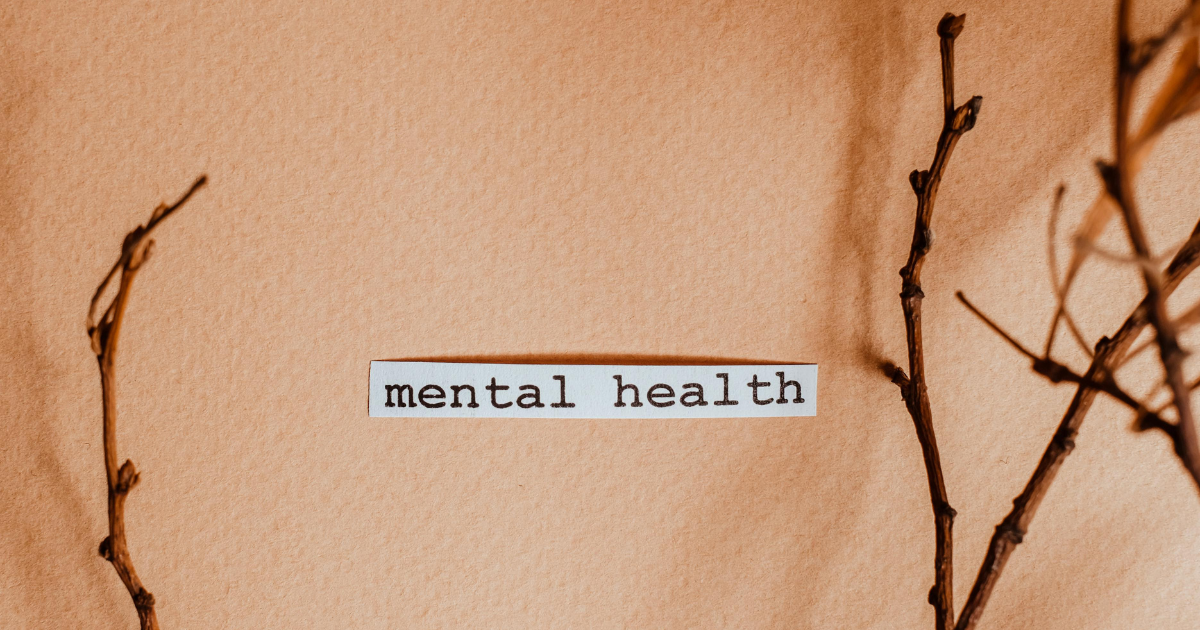ADHD stands for Attention Deficit Hyperactivity Disorder and it is essentially a neurodevelopmental defect that affects both children and adults. Symptoms of the disorder typically include but are not limited to continued patterns of inattentive behavior, hyperactivity, and impulsivity.
This disorder may hinder day-to-day functions, academic work, and relationships. The CDC approximates that between 5 and 10% of the population all over the world suffers from ADHD, so probably making it one of the most prevalent disorders among children and adults.
What Is ADHD? A Brief Overview
ADHD is not a one-size-fits-all condition. It affects individuals differently, and the symptoms can vary in severity. There are three main types of ADHD:
- Inattentive Type. People with this type may struggle to stay focused, have difficulty following through on tasks, and often make careless mistakes due to lack of attention.
- Hyperactive Impulsive Type. Individuals with this type often fidget, talk excessively, or interrupt others, making it challenging to sit still or focus on one task for extended periods.
- Combined Type. This is a mixture of both inattentive and hyperactive-impulsive symptoms.
Symptoms and Challenges of ADHD
Everyone has a different life with ADHD, and this is true for children and adults with ADHD alike. By this, we mean they struggle with school or work-related tasks when handling social interactions and self-esteem.
Organization, time management, and completing tasks without distraction are other areas in which individuals with ADHD struggle a lot.
Conventional treatments include several types of stimulant medications (Ritalin, Adderall, etc.) and are effective for many patients taking them. However, since this therapy will not match every person’s needs and is often followed by adverse effects, the pursuit of alternative treatments has led to the investigation of other new options, such as ketamine for ADHD.
How Traditional ADHD Treatments Work
The principal prescription medication for the treatment of ADHD is stimulants such as Adderall, which improve concentration, attention, and impulsive control through increases in dopamine and norepinephrine concentrations in the brain.
The medications carry disadvantages such as side effects like insomnia, loss of appetite, or heightened anxieties for some, as there are variations in individual responses, meaning positive or negative reactions that might compel one to go to alternative medications like ketamine therapy for ADHD.
What Is Ketamine, and How Does It Work?
Ketamine as a Psychiatric Treatment. An Introduction
Ketamine, formerly an anesthetic agent, has made its recent way into the treatment arena for various mental disorders like depression, anxiety, and PTSD while having an additional recent indication for ADHD. It has taken research and clinical practice by storm in its speediness of symptom relief and fast reduction in the severity of some mental health disorders.
It acts at lower doses, specifically on the glutamate systems of the brain, contrary to the regular psychiatric drugs, whose actions majorly involve the neurotransmitters serotonin and dopamine. Keeping in view this different mechanism of action, ketamine has been tried and found helpful for conditions that did not respond optimally to usual treatments.
Mechanism of Ketamine in the Brain
Ketamine interrupts excitatory neurotransmission through the NMDA receptors in the brain. This action is needed to regulate glutamate, the major excitatory neurotransmitter. Therefore, this effect helps to lead to neural plasticity by forming new connections and pathways that improve an individual’s mental health outcomes.
Among individuals with ADHD, ketamine’s ability to reset neural pathways may significantly improve concentration, cognition, and emotional regulation. It may be beneficial for those who have not had comparable efficacy on traditional ADHD treatments.
Low-Dose Ketamine for ADHD: What Studies Say
Low-dose ketamine for ADHD is still in the fledgling phase of research, but findings to date are promising. Studies suggest that low doses of ketamine may improve attentiveness while minimizing hyperactive-impulsive symptoms of ADHD in individuals. Such improvements are thought to occur as a result of the positive effects of ketamine on function and connectivity within the brain.
Clinical trials have shown that rapid symptom relief may be achieved with ketamine therapy for ADHD within hours after treatment. Because of this, the speed associated with ketamine is quite different from that of conventional drugs, which might take weeks to show benefits.
Moreover, ketamine ADHD studies indicate that long-term positive changes in brain function can come from repetitive applications, offering invaluable benefits to those who haven’t responded to standard medications.
Ketamine Therapy for ADHD – A New Approach
Does Ketamine Help With ADHD? Evidence and Insights
Well, does ketamine work with ADHD? A handful of individuals might have an affirmative answer. There is scarce research about ketamine in the treatment of ADHD, though some preliminary results from several smaller studies have yielded somewhat encouraging prospects.
In fact, for people seeking freedom from ADHD symptoms, ketamine would appear to have a much brighter chance of alleviating symptoms through its effects on cognition, attention, and affect.
A research article in the Journal of Psychiatric Research stated that ADHD patients treated with low-dose ketamine showed improvement in blocked attention, hyperactivity, and impulsivity. Furthermore, such improvements were maintained over time, indicating that ketamine therapy for ADHD might have benefits in the long term.
Microdosing Ketamine for PTSD and ADHD. What to Know
Microdosing ketamine has quickly evolved into a new entity treatment option for post-traumatic stress disorder or trauma-related disorders, with emerging evidence suggesting that microdosing ketamine is also of value for patients with Attention Deficit Hyperactivity Disorder.
So, minute quantities of ketamine do not result in its commonly associated dissociative dimensions but are just sufficient to effect changes in neuronal activity taken by micro-dosing.

Benefits of Ketamine Treatment for ADHD
The potential benefits of ketamine therapy for ADHD include:
| Rapid Symptom Relief | Ketamine works quickly, often providing a noticeable improvement in symptoms within hours. |
| Reduced Dependence on Stimulants | For those who struggle with stimulant medications, ketamine provides an alternative that may reduce the need for long-term use of traditional ADHD drugs. |
| Reduced Dependence on Stimulants | Ketamine’s ability to enhance brain function and plasticity may help improve memory, focus, and learning abilities in individuals with ADHD. |
| Fewer Side Effects | Compared to stimulant medications, ketamine may cause fewer side effects and may be better tolerated by some patients. |
Ketamine Vs. Traditional ADHD Medications
Ketamine and ADHD Stimulant Medications. Can They Work Together?
A very popular question nowadays is whether ketamine is helpful in combination with ADHD stimulant medications. The answer is somewhat complicated. Although those treatments approach two different neurotransmitter systems, the medicines can have synergistic effects or be additive for side effects elsewhere.
People might respond differently to the combination of ketamine and stimulant medications, so there is no standard answer. Every patient here must make a joint evaluation with their reference source before they arrive at any complementary terms for using the two regimes.
Does Ketamine Make ADHD Worse? Addressing Concerns
Perhaps the most valid issue people have concerns with is whether ketamine makes ADHD worse. There are temporary side effects, such as dissociation or confusion, which could increase ADHD symptoms in some individuals. However, these are usually short-term and go away after the treatment session.
The risk of ketamine worsening ADHD symptoms is generally low, mainly when used in low doses under professional supervision. If you’re considering ketamine ADHD treatment, discuss potential side effects with your doctor to weigh the risks and benefits.
Comparing Ketamine With Common ADHD Medications
When comparing ketamine ADHD treatment to traditional ADHD medications like Ritalin or Adderall, several differences emerge.
- Onset of Action. Ketamine works much faster than traditional ADHD medications, often providing relief within hours.
- Side Effects. Ketamine has fewer long-term side effects compared to stimulants, which can cause issues like insomnia, appetite loss, and anxiety.
- Effectiveness. While stimulant medications work for many, they may not be effective for everyone. Ketamine offers a new alternative for those who have not responded to traditional treatments.
Other Mental Health Conditions Ketamine Can Treat
Ketamine for PTSD, Depression, and Anxiety
In addition to ADHD, ketamine has demonstrated effectiveness in the treatment of PTSD, depression, and anxiety. The potential of ketamine to modulate how the brain functions and facilitate mood enhancement has made it an invaluable asset in the orchestrated but heterogeneous treatment of chronic, treatment-resistant disorders.
Ketamine for ADHD and Comorbid Conditions
Most people diagnosed with ADHD have accompanying conditions of anxiety, depression, and even PTSD. Ketamine for ADHD and comorbid conditions could help address these challenges that are too interlinked with one another.
By treating ADHD and other co-occurring conditions together, a comprehensive therapeutic result can be achieved through ketamine therapy from traditional treatment modalities.
Current Research on Ketamine for Mental Health
The progress in the research field of ketamine treatment, specifically for ADHD and other mental health disorders, keeps on broadening. As several new researches are done shortly, clarity about the potential benefits, risks, and impacts of ketamine is ascertained.
The Process of Ketamine Therapy for ADHD
What to Expect During Ketamine Treatment
If you are looking at an alternative avenue of trying ketamine treatment for ADHD, you need to know what it entails. The ketamine procedure comes in two forms: IV infusion or nasal spray, depending on the clinic. Usually, the isolated session can last from 40 minutes to an hour, and treatment will be carried out under strict observation.
Safety and Side Effects of Ketamine Therapy
Under medical supervision, ketamine therapy for ADHD is usually safe. As with anything, it may lead to side effects. Some may experience nausea, dizziness, or mild dissociation during the session, which typically fades soon after the end of treatment.
Finding a Ketamine Clinic Near You
Are you ready to consider ketamine as an option for treating ADHD? If so, schedule a consultation today with a reliable healthcare provider who can advise you on whether ketamine can help improve your symptoms and quality of life.

FAQs
Does Ketamine Work for ADHD?
Yes, ketamine for ADHD has shown promising results in clinical studies, providing rapid symptom relief for many individuals.
What Are the Risks of Ketamine Therapy for ADHD?
Potential risks include temporary side effects like nausea, dizziness, or dissociation. However, these effects are typically short-lived and resolve after the session.
How Does Ketamine Compare to Other ADHD Treatments?
Ketamine offers a faster onset of action and fewer side effects compared to traditional stimulant medications.
Can Ketamine and ADHD Medications Be Used Together?
In some cases, ketamine and ADHD stimulant medications may be used together under a doctor’s guidance to enhance treatment effectiveness.
Is Ketamine Right for Me?
If traditional treatments haven’t worked, or you’re looking for a new option, ketamine therapy for ADHD might be the right choice for you. Consult with your healthcare provider to explore your options.






